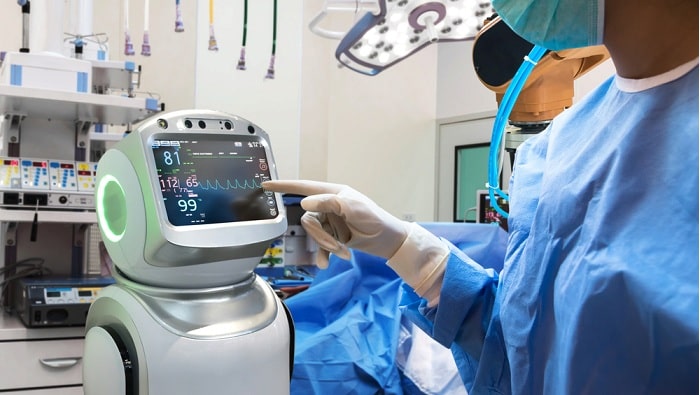Hospitals all over the world must increase their efficiency and productivity and boost quality and safety, while containing and reducing costs. Over years, this resulted in linear cuts, which proved to be a disaster during the COVID-19 pandemic.
The European Commission has invested €40 million to foster researchers that may redesign the hospital of the future.
Dr Leandro Pecchia from the School of Engineering at the University of Warwick, has been awarded €13 million for the ODIN project, which will explore the use of robots and artificial intelligence to help ease the pressures on hospitals, which will be crucial also in the recovery of Covid-19 and to help any other future disasters.
EU Hospitals were completely unprepared to fight the COVID-19 pandemic, also because the number of ICU beds per million of EU habitants has been reduced by 75% in the past 30 years, and due to the unneglectable need to invest in territory healthcare services in response to demographic challenges.
ODIN will deploy technologies along three lines of intervention:
· Empowering workers using AI, cybernetics and bionics
· Introducing autonomous and collaborative robots for enhancing hospital efficacy and safety
· Introducing and enhancing medical locations and medical device management with IoT and video analytics
Dr Pecchia continues: “These areas of intervention will be piloted in six top hospitals in Berlin, Paris, Rome, Madrid, Utrecht and Lodz. ODIN will span from clinical to logistic procedures, including patient management, medical device and PPE management, disaster preparedness for example reorganising Hospitals in case of pandemics, and hospital resiliency.”
The researchers will work with three top medical device manufacturers: Samsung, Philips and Medtronics; as well as seven SMEs to achieve the vision of the project, which is that hospital management can be revolutionized by using data driven management such as Industry 4.0 technologies, the same way evidence based medicine revolutionised medicine with data-driven procedures.
This is the 5th successful project written by Dr Pecchia and his team in the past 12 months, focusing on IoT, AI, Robots and big-data for healthcare, for a total value of £35 million.


















